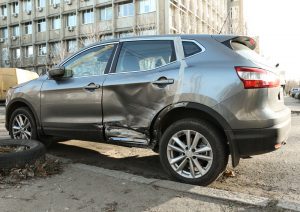
Auto insurance is a necessity in some states and can be extremely beneficial in specific circumstances. With that said, every driver has different needs, so finding the right coverage is necessary to ensure you are protected financially, but at the same time you’re not overpaying for coverage you don’t need. If you drive an older model car, it can be tempting to drop your collision coverage to save money. Find out if you should consider dropping collision on your auto insurance.
Understanding the Types of Insurance
There are several types of insurance with each intended to address different needs. Some states require drivers to carry specific types of auto insurance coverage. After you have whatever policies you are required to carry, you can adjust the other coverage you choose to have.
Liability
Liability coverage pays for damage to other vehicles, people and property you caused while behind the wheel. For example, liability coverage could pay the medical or repair bills if you hit a pedestrian, another vehicle or a mailbox. Most states require drivers to carry liability coverage at a minimum.
Collision
Auto collision coverage pays to repair or replace your vehicle if it is damaged in an accident. Your collision coverage will pay the repair bills for damage to your vehicle if you caused the accident. If other drivers are involved and their vehicles are damaged, those repair costs fall under your liability insurance. If another driver hit your vehicle and that individual is found at fault, then their insurance policy would cover the cost to repair your vehicle.
Comprehensive
Many auto insurance policies also offer comprehensive coverage. This is coverage designed to cover damage caused by something other than an auto accident. Vandalism, hail or a tree branch landing on your vehicle are the sorts of things covered by comprehensive coverage.
Premiums and Deductibles
Any discussion about auto insurance needs to address premiums and deductibles. A premium is the bill you pay just to have insurance coverage. A deductible is the amount of a claim you are responsible to pay. Once you pay the deductible, your insurance policy will cover the balance. For example, if you cause an accident that results in a $500 repair bill and you have a $250 deductible, you pay your deductible and then your insurance provider will pay the remaining amount.
Finding the Value in Collision Coverage
Collision coverage may not be worth it for you; although, going without may not be a good idea either. A couple factors can help guide you when deciding whether or not to carry collision coverage: your savings and your vehicle. Dropping collision coverage means you need to foot the bill if your vehicle is damaged or be willing to take the loss.
Pay for Repairs
If you have enough of a savings and can afford to make repairs to your vehicle then you may not need collision. This may be an easier decision for owners of older vehicles, because older cars are usually less expensive to repair. Opting for used parts can be a great way to keep costs down and keep repair work in an affordable range.
Cut Your Losses
Collision may be an unnecessary expense for older vehicles with a low value. If the cost to make repairs is greater than the value of the vehicle, most insurance companies will not pay for the repair work. When selecting coverage for an older vehicle with a diminished value, pay attention to how much coverage you choose and consider if it is even worthwhile to have coverage.
Dropping collision coverage can be a great way to save money. This can be particularly helpful if you plan to purchase a new car in the near future. You can use that money saved on collision to put towards your new vehicle.
Other Options
You do have other options if you’re not comfortable completely dropping your collision coverage. You can always adjust your deductible. Deductibles and premiums tend to balance each other out. Opting for a high deductible will decrease your premium, but going with a lower deductible will increase your premium.
You can choose to go with a lower premium which will save you money throughout the year. However, a low premium means a high deductible. If you tend to not have accidents, this can be a good plan to ensure you still have coverage, but you’re not paying a lot. When ever you go with a higher deductible you need to be prepared to cover that cost if you should have an accident.
Finding the Right Fit
Dropping your collision auto insurance can save money. There are a number of reasons why it may make sense to drop your collision coverage. Typically, this is only a good idea for safe drivers of older model vehicles, but each case is different. When you understand your needs and circumstances you can determine what coverage makes the most sense for you and go from there. If you have questions about your auto policy, contact our team at Bieritz Insurance and we will be happy to assist you!

